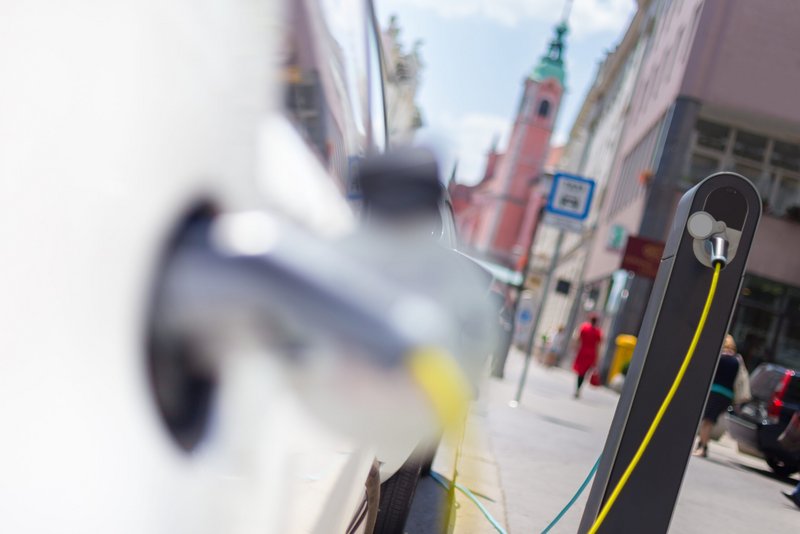Dresden: As part of the FlexHub research project, Kiwigrid, EnergieDock and Mitnetz Strom have demonstrated how flexible loads can be managed via a flexibility market to contribute to grid stability.
In the distributed energy world, generation and demand need to be coordinated differently than before. When electricity demand is lower than green electricity production and the grid at risk of overload, consumption should be intelligently managed via distributed flexible loads instead of shutting down renewable plants.
6,482 GWh* of renewable generation were lost across Germany in 2019 due to shutting down renewable production to stem the risk of grid overload, known as feed-in management measures. The associated costs of almost € 710 million were passed on to end-consumers via grid fees. In 2020, there was a significant increase in curtailments of renewable feed-in compared to the previous year.
Funded by the German Federal Ministry for Economic Affairs and Energy, the FlexHub research project is exploring how existing grid infrastructure can be used more efficiently and how unnecessary and expensive grid expansion can be avoided. The partners are investigating how harnessing flexible assets can help maximize feed-in and avoid shutting down plants and, therefore, the cost of compensation payments to plant operators.
A live demonstration has shown how users of a home energy management system can make their electric vehicle (EV) available to a flexibility market as a flexible load. The time-coordinated management of flexible loads serves grid stability and opens up various new business cases for distribution system operators, aggregators and balance responsible parties. As a result, electricity costs for end-customers could be reduced and customer-oriented, convenient new energy offers made available.
The demonstration used the energy service platform KiwiOS and the home energy management system by software and IoT company Kiwigrid, managing intelligent devices such as photovoltaic systems, electricity storage units and EV charging stations. The KiwiOS platform securely and scalably processes immense amounts of data from distributed energy resources in real-time. EnergieDock, a spin-off of HAW Hamburg, controls the Kiwigrid home energy management system with its software platform for the flexibility market NEMO.spot. The distribution grid operator Mitnetz Strom reports the need for increased electricity demand via the NEMO.spot user interface in situations such as a surplus of renewable generation being forecast for the following day.
Dr. Frank Schlichting, CEO of Kiwigrid:
„Flexibility is crucial for the energy transition because it is the only way to maximize the use of renewables. To integrate it into the energy system, we need a powerful, highly secure platform designed specifically for the energy sector with energy products running on it. Having reached an important milestone with the successful testing, we’re looking forward to the roll-out of this advanced technology, to which our KiwiOS and energy software will make a significant contribution.”
Dr. Tim Dethlefs, founder and CEO of EnergieDock:
„Our solution NEMO.spot enables grid operators to coordinate flexible assets instead of having to shut them down, allowing them to generate value from grid stabilizing technology. As a startup, we create a fair energy market for all stakeholders. The FlexHub project allows us to implement this vision with strong partners.”
Steve Bahn, Process and System Management Meter2Cash at Mitnetz Strom:
„The successful demonstration with Kiwigrid and EnergieDock proves that the technology underpinning our NetzFlex tariff is also suitable for other use cases involving the management of flexible assets. Pilot customers with electric vehicles will test the technology this year to demonstrate the technical feasibility and enabling us to gather valuable customer feedback.”
* Source: Annual Report of the Federal Network Agency 2019, see: https://www.pv-magazine.de/2020/05/27/2019-in-deutschland-6482-gigawattstunden-erneuerbaren-strom-abgeregelt/ and https://www.bundesnetzagentur.de/SharedDocs/Mediathek/Jahresberichte/JB2019.html
About Kiwigrid
Kiwigrid is the software and IoT company for renewable energy. The KiwiOS platform is used to operate white label products for energy suppliers, the automotive industry and manufacturers of decentralized energy systems. Kiwigrid enables its customers to open up new markets, diversify their offerings and differentiate themselves from the competition. The Dresden-based company was founded in 2011 and currently employs over 150 people. Kiwigrid is a leader for intelligent energy management and works with E.ON, BayWa r.e., LG Electronics among others.
About EnergieDock
EnergieDock is a startup spun out of research on energy markets at the Hamburg University of Applied Sciences. The Hamburg-based startup was founded in April 2020, in the midst of the COVID-19 crisis, by scientists Dr. Tim Dethlefs, Dr. Tim Plath and Dr. Thomas Preisler and is pursuing the mission of creating a fair energy market for flexibility. Now operating with five employees, the young company has already convinced customers of its unique approach and achieved profitability in its founding year.
https://www.energiedock.de
About Mitnetz Strom
Mitteldeutsche Netzgesellschaft Strom mbH (MITNETZ STROM), based in Kabelsketal, is a wholly owned subsidiary of envia Mitteldeutsche Energie AG (enviaM). As the largest regional distribution system operator in eastern Germany, MITNETZ STROM is responsible, among other things, for planning, operating and marketing the enviaM electricity grid. The electricity distribution grid managed by MITNETZ STROM has a length of around 74,000 kilometers and covers parts of the federal states of Brandenburg, Saxony, Saxony-Anhalt and Thuringia.
https://www.mitnetz-strom.de/
About FlexHub
The project "FlexHub - Verteiltes Flexibilitätsdatenregister für Strommärkte der Energiewende" (roughly translated as Distributed Flexibility Data Registry for Electricity Markets in the Energy Transition) is funded by the German Federal Ministry for Economic Affairs and Energy. The project has been running since 2019 and is expected to end on December 31, 2022. The project develops a flexibility data register with an energy market for flexible loads and generators. The partners of the research project are FGH e.V. (consortium leader), Fraunhofer FIT, Fraunhofer FKIE, EnergieDock UG subcontracted by HAW Hamburg, Kiwigrid GmbH, RWTH Aachen and MITNETZ STROM.
https://www.mitnetz-strom.de/unternehmen/blog/blog/2021/01/20/forschungsprojekt-flexhub-netz-effizienter-nutzen
